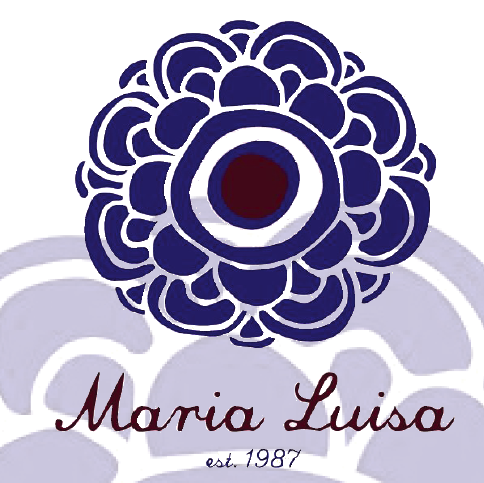 Earth Matters focuses on conservation, sustainability, recycling and healthy living. This weekly series is brought to you by Maria Luisa Boutique, Strawtown Studio and Dying To Bloom, a natural burial boutique for humans and pets which invites you to attend “Developing Your Final Exit Plan” on June 6.
Earth Matters focuses on conservation, sustainability, recycling and healthy living. This weekly series is brought to you by Maria Luisa Boutique, Strawtown Studio and Dying To Bloom, a natural burial boutique for humans and pets which invites you to attend “Developing Your Final Exit Plan” on June 6.If Earth Matters to you, sign up for our mailing list and get the next installment delivered right to your inbox.
by Susan Hellauer
Not long ago I was asked about my earliest memory. It’s still quite clear: Someone was carrying my four-year-old self, a ball of Bronx backyard mud, by one overall strap into the house and straight to the bathtub. As soon as I described it, I realized that this once-common childhood scene isn’t so common now.
Apart from sports played on natural dirt and grass, real earthy grime is a rare thing. Kids sit watching screens and interacting in a virtual world. Catching bugs, digging for China, lying back on the grass and watching clouds . . . Who does these things anymore? When was the last time you saw a filthy kid? (An ice cream-covered face doesn’t count.)
Instead of complaining like an old grouch, I looked around for people who not only tolerate, but encourage kids to get good and dirty. And I found some educators around here who look to the soil, and its plants, bugs, and microbes, to help kids form a lifelong connection with nature—and maybe get a little healthier, too.
Look down, everybody
To see exactly how getting dirty makes a difference, I visited Blue Rock School, which clings to a wooded hillside on a residential West Nyack cul de sac. Science and gardening teacher, and environmental guru Nicole Palitti took time out of her chock-full garden activity schedule to show me around the campus, where the outdoors is as much a classroom as any indoor space.

Blue Rock’s fourth grade harvests holy basil with teachers Alicyn Mindel and Nicole Palitti.? Photo Lucia Gratch, courtesy Blue Rock School
Palitti started at the private K-8 school as a parent volunteer, and one of her first projects five years ago was to help plant a “three sisters” garden of corn, beans, and squash. The garden supports a native peoples study program as well as the earth science curriculum. A nearby colonial herb garden is tended by fourth graders studying pre-Revolutionary America. “We don’t grade or test here, so it’s a whole different mindset—you’re here to learn how to learn,” said Palitti. “It’s this tactile learning, which is never going to be on a ‘fill-in-the-bubble’ test, that helps convey how everything is connected—that nothing exists by itself, including us.”
Even so, it’s not always an instant rapport between modern child and mother earth. “Sometimes kids get this urge to go wash their hands while they’re still working, and I have to tell them they can wait until we’re finished,” said Palitti. She isn’t shocked at this reaction. “As a society we don’t really embrace getting dirty as a positive sign of engaging with the Earth.”

Mud rivers. Photo courtesy Blue Rock School
On “Mother Earth” time
Blue Rock wants its students to enjoy being up to their elbows in mud and soil, “and with insects and slimy things too,” said the master gardener and self-avowed “bug head.” Palitti has noticed that ease with insects and worms seems to be contagious. “Someone will say: ‘Look at what I found. I think it’s beautiful!’ And soon, someone else is looking and admiring too.”
Down-in-the-dirt science has a way of sticking, too. “If kids are learning about invertebrates on a computer screen, well, it’s just not viscerally the same thing as holding an earthworm.” Palitti creates look-down scavenger hunts for items like invertebrates with more than eight legs, a larval form of a butterfly, and a flower with five white petals. “Gardening is part of science time: Students learn the life cycles of insects, invertebrates vs. vertebrates, chemistry, genetics and physical science,” she added.

Earthworms on the move at summer play camp. Photo courtesy Blue Rock School
Growing food means getting dirty, but it also means living and learning by nature’s clock. Sixth graders planted a patch of purple asparagus two years ago, but just harvested it last week as eighth graders. “In their other life, information is available in an instant,” said Palitti. “But in the asparagus patch, it’s all patience and uncertainty with a sweet reward: decades of something wonderful, and a legacy to future classes.” She noted that the students enjoyed their long-awaited asparagus on a pizza.
Summer Play Camp at Blue Rock School offers ample opportunities to get dirty (and enjoy lots of other activities too). Space still available. Visit www.summerplaycamp.org
The “Dirt Cure”
So, is dirt—like the dirt on your child’s fingers, or hiding on a garden asparagus stalk—so good for us that we could eat it? Well, yes. Recent studies have found that children raised on farms, who play outside on the barnyard ground and eat food pulled straight from their fields (and not power-washed in a factory) have fewer allergies and other autoimmune disorders than non-rural kids who keep their hands and jeans clean. A Bronx pediatric neurologist created a plan based on these findings to help her severely food-allergic toddler get healthy. The plan worked. And the book she wrote to detail her approach? The Dirt Cure, of course.
In a 2016 interview with the New York Times Wellness blog, Dr. Maya Shetreat-Klein discussed her plan to feed her children unprocessed food from healthy soil, to take them to spend time in nature, and to let them play in the dirt:
In one teaspoon of soil there are more organisms than there are humans on our planet. Soil houses about 25 percent of the world’s biodiversity. What we also know from studies is that when children spend time in green environments – in natural playgrounds, for example, or in parks and forests – they perform better on standardized tests, they’re more creative, they’re happier and their cortisol levels are lower, so they’re calmer and less stressed. And I think that might be somewhat related to the kind of organisms they’re exposed to when they’re playing outdoors.
Back to the soil . . .
Blue Rock students have been gardening for 18 years, and the shaded, serpentine campus paths are dotted with tools for planting, weeding, and even digging to China. (“We love when our kids get dirty,” said Kindergarten teacher Lucia Gratch.)

Third graders meet garden soil at Liberty Elementary in Valley Cottage. Photo: Susan Hellauer
And getting back to getting dirty is part of the plan at some of our public schools as well. Students at Nyack School District’s Liberty Elementary School, for one, gathered outside grade by grade last week to plant seeds in new above-ground raised beds, funded by the PTA and built by Liberty parent McBrien Dunbar. “The boxes expand the garden exponentially and for the first time, ALL kids at Liberty get to plant,” said Liberty PTA c0-president Amy Anthony.
The Rockland Farm Alliance runs a “Junior Farmers Camp” every summer where children spend “plenty of time getting their hands dirty working on the farm.” (This summer, as usual, the camp sold out quickly, so get on their mailing list if you want your child to cultivate their organic, biodynamic soil next summer.) They also present family farming activities during the year, and offer a co-op for fresh produce during growing season.

Kids have been getting “good” and dirty with Strawtown Studio since 2002! Summer and year-round nature, art and science discovery programs created for connecting with the earth and creativity. Photo courtesy Strawtown Studio
The art-in-nature educators and environmental advocates at Rockland’s beloved Strawtown Studio (another Earth Matters sponsor) have been getting their students happily coated with mud for art’s sake since 2002. However, said Laurie Seeman, founder and artistic director, those who just can’t get dirty can find a place on their “clean team,” rolling up sleeves and handing over art materials. She also passed along a comment from alumnus Ray, now age 17: “At Strawtown we learned from the mud.”
Learn more:
- “Why do Amish kids have fewer allergies? The answer may come from the farm” (STATNews, 8/3/16)
- “How the ‘Dirt Cure’ Can Make for Healthier Families” (New York Times, 2/11/16)
- “Microbes rule your health — and further prove that kids should eat dirt” (Chicago Tribune, 10/13/17)
- Dr Maya Shetreat-Klein talks about her book The Dirt Cure at a Google Talk in 2016
- Blue Rock School .
- “Blue Rock School” (Nyack News and Views: Nyack Sketch Log, 4/24/18)
- Strawtown Studio will present “Sticks Stones & Mud: An Art Exhibition of Children’s Friendship with Nature, opening June 24, Rockefeller Park Preserve, Pleasantville, NY. Free signup. And their Summer Discovery Days art, nature and science program promises daily encounters with mud, soil, rocks, bugs and more. (July 2 – August 9)
- Rockland Farm Alliance

Digging to China. Photo: Lucia Gratch, courtesy Blue Rock School
Email Earth Matters
Read Earth Matters every Wednesday in Nyack News And Views, or sign up for the Earth Matters mailing list.
Earth Matters focuses on conservation, sustainability, recycling and healthy living. This weekly series is brought to you by Maria Luisa Boutique, Strawtown Studio, and Dying To Bloom, a natural burial boutique for humans and pets.











